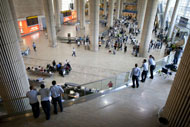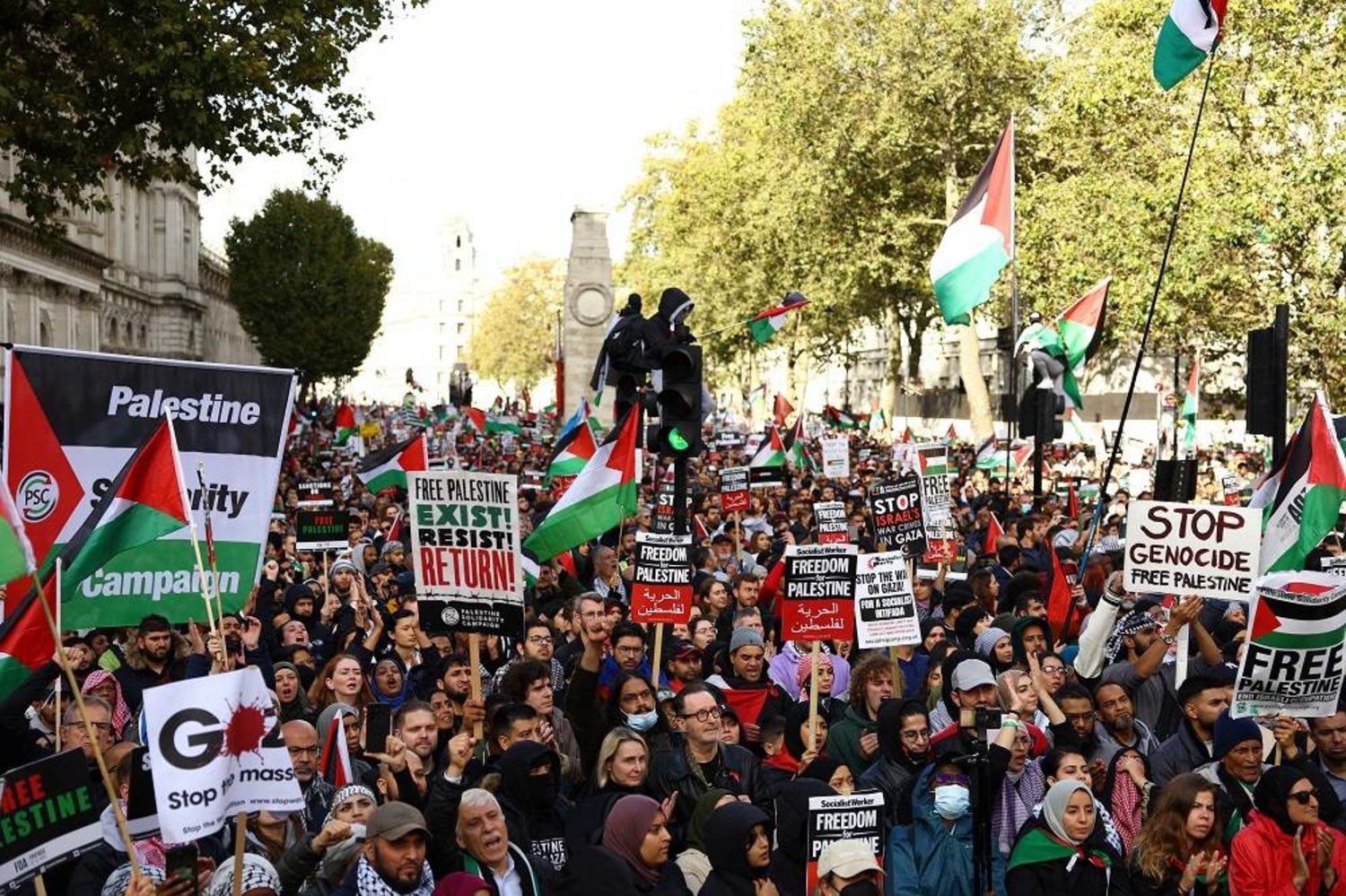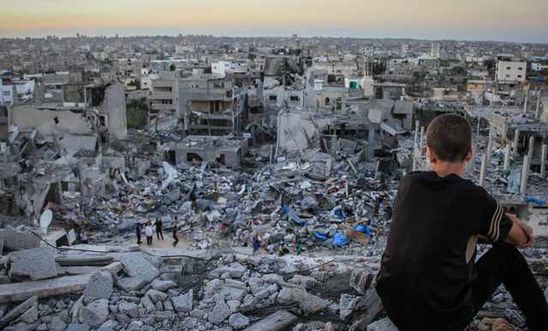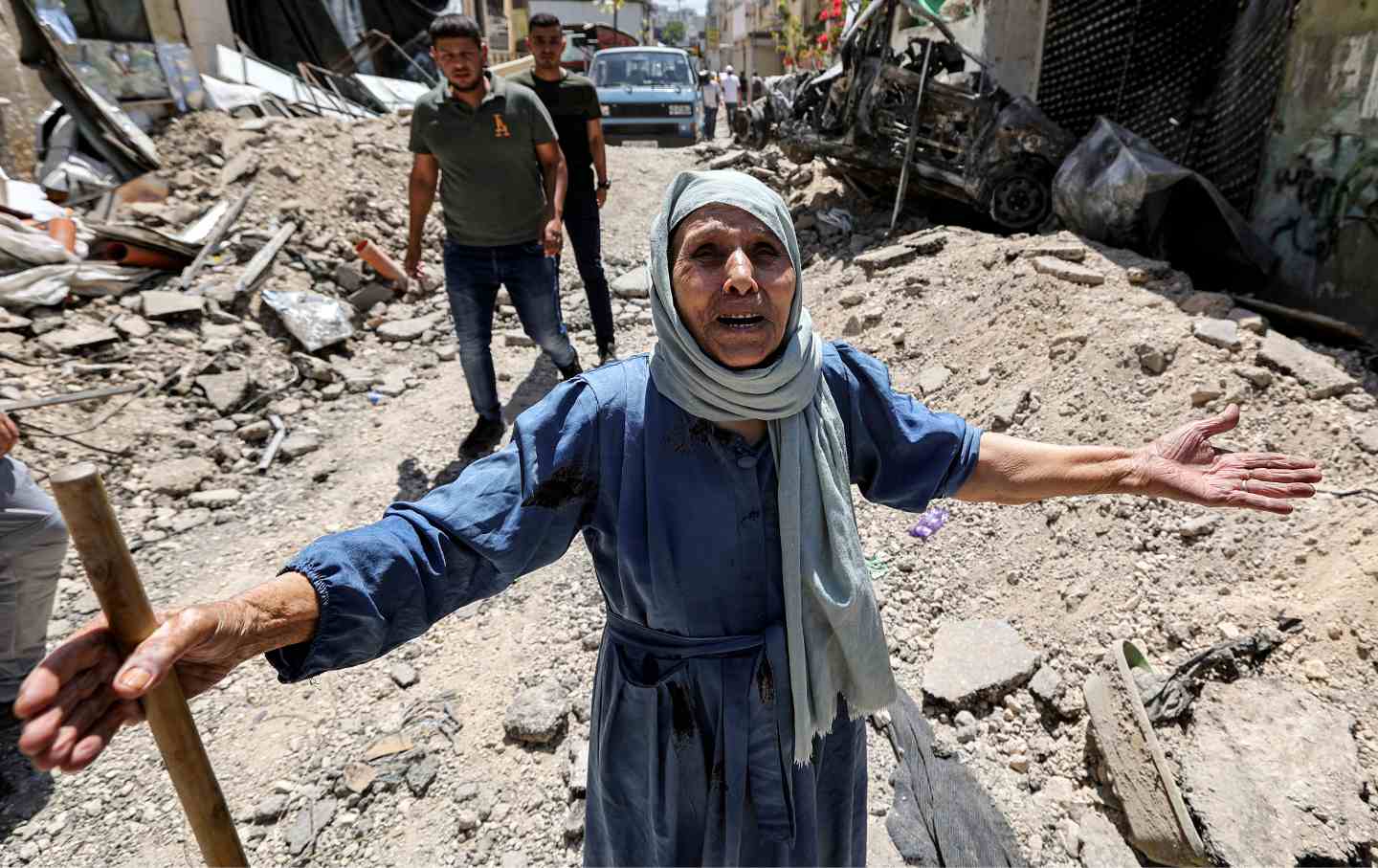In tandem with the hopes for a successful formation of a Palestinian national unity government, following the Fateh-Hamas signing of the Mecca Agreement last week, cautiously optimistic voices calling for the rebuilding of a tattered and torn Palestine are starting to be heard.
For years, as Israeli occupation measures and internal disputes ravaged the West Bank and Gaza, potential investors and businesspeople were forced to put their plans on hold until the conditions were ripe for any real nation building. Today, with the hopes that a viable and unified Palestinian government may finally come to fruition, these plans are back in the headlines, including a plan to build a new Palestinian city between Ramallah and Jericho at a cost of $33 million.
According to Abdel Malik Jaber, executive director of the Paltel Group, the proposed city would include 7,000 housing units that could accommodate up to 50,000 people. The new city would also be home to schools and health centers and would create job opportunities for thousands of unemployed Palestinians.
The plan is ambitious, to say the least, and depends on a myriad of factors and conditions. Palestinians know all too well how fragile any investment in the Palestinian territories is given the volatility of the political situation. They also know that any money flowing into the territories could literally go up in smoke in the blink of any eye.
These lessons were learned long ago, after the Oslo Accords were signed in 1993. Late President Yasser Arafat made a hero’s homecoming to the Palestinian territories in 1994 after years of exile, bringing with him the hopes of freedom and the long-awaited dream: an independent and free Palestine.
For the next six years, on the surface, prospects for a lasting peace seemed closer than ever, although anyone who looked twice would have realized that the Palestinians along with the Israelis and the international community were only contributing to the creation of a façade, which would soon come crashing down around us.
While Palestinian expatriates began returning to their motherland and local and foreign investors and international aid organizations started pouring money into the parched territories, long craving stability and economic prosperity, Israel was creating its own facts on the ground. Under the false pretext that we were in our “last quarter of an hour” before liberation, Israel was erecting more checkpoints, carefully laying plans for the days to come, which evidently did not include a viable Palestinian state in the blueprints.
Those were the days when businesses began to flourish and high rise apartment buildings popped up throughout the West Bank and Gaza. Extravagant hotels were built, posh restaurants opened and US, European and Japanese projects launched to build schools, pave roads and jumpstart “development” projects in every nook of the Palestinian territories.
The people were thus given a false sense of security. Jobs were created and hundreds of thousands of other workers were given permits to enter Israel to find jobs there. Throughout, the Palestinians listened to their leadership, believing they were one summit, one agreement and one John Hancock away from their own state.
It took one incident to blow this illusion to smithereens. On September 28, 2000, then Likud leader Ariel Sharon knew the moment he and his 3,000-strong security force stepped into the Aqsa Mosque Compound, it would mark the end of any misconceptions the Palestinians may have had about Israel’s true intents.
Naturally, as the Intifada took root and the Israeli-perpetuated violence rose to unprecedented levels, investment levels contrastingly dropped. Not only were newly-built buildings shelled or demolished, but Israeli built road blocks, checkpoints and later, the ominous separation wall, crushed any prospects for viable investments.
Now, six and a half years later, the West Bank and Gaza are more or less in shambles. Whatever investments that thrived during the Oslo years are now struggling to keep their heads above water. Many other business enterprises have gone under while some are still struggling to get out of the red. This devastation is epitomized by the sorry state of what was once Yasser Arafat’s headquarters in Ramallah. Once a symbol of glory and strength, it has been reduced to a sorry state of rubble, pockmarks sprayed across the only building left intact where the leadership now meets. For two years Israel sequestered Arafat, prohibiting him from leaving the premise. The late president’s final trip out of his battered headquarters was en route to Paris for medical treatment and from which Israel was almost certain he would not return alive.
After Arafat’s death, a tiny sliver of hope was allowed into the Palestinians’ lives yet again, this time in the form of new presidential and legislative elections. President Abbas was duly sworn in as Arafat’s predecessor and last year, PLC elections were held, Hamas won the majority vote, later formed the government and mayhem soon followed.
If Israel did not succeed in completely squelching any hopes for the future, the bitter infighting between Fateh and Hamas certainly did. As members of Hamas and Fateh proceeded to kill, kidnap and slander each other, anyone fathoming a return to Palestine or at least investing in its economy soon changed their minds.
So now, with a possible unity government on the horizon and perhaps some peace on the internal Palestinian front (prospects of peace with Israel still look as bleak as ever), talk of rebuilding is back on the agenda.
This is all good and well. Palestinians have suffered under the brunt of the occupation for far too long, the ugly ramifications of which have bred widespread unemployment and poverty. Any plans that might alleviate these crippling problems are more than welcomed.
However, we must all be forewarned. If the political conditions are not conducive to long-term economic stability - that is, a viable, sovereign and independent Palestinian state - then no investments, man-made cities or international-funded projects will be able to sustain for long. The Oslo experience was a harsh lesson for us all and a reminder that as long as Israel maintains its control over the Palestinians at any level, there is no hope for any permanent stability. If Palestine is to be rebuilt, its construction, like any other structure, must stand on strong foundations. In our case, this means a just and permanent solution must be found to the Palestinian-Israeli conflict by which we are free to live by our own rules and control our own destiny. Otherwise, if we attempt to build on shaky foundations, just like a faulty building, our “new” Palestine will collapse in a heap of dust and smoke.
Joharah Baker is a Writer for the Media and Information Programme at the Palestinian Initiative for the Promotion of Global Dialogue and Democracy (MIFTAH). She can be contacted at mip@miftah.org









